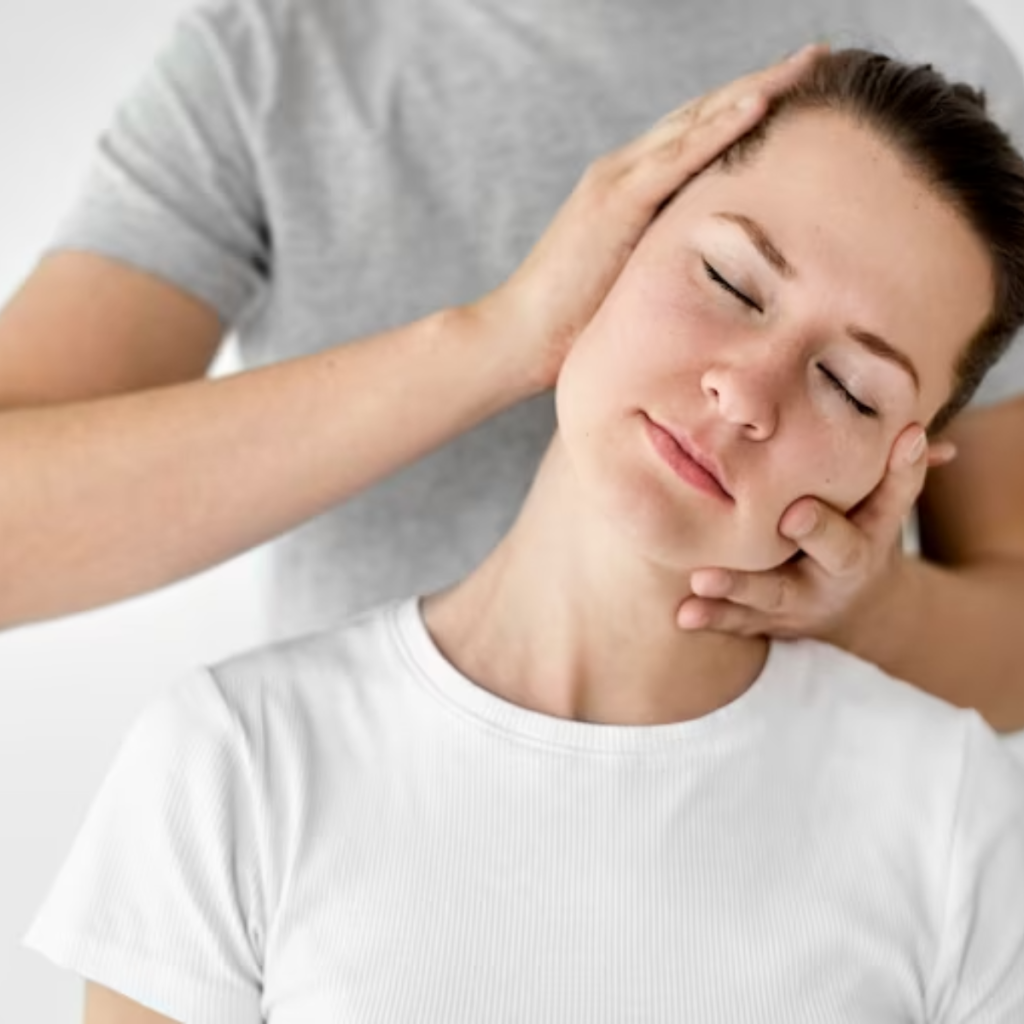Discover natural and holistic remedies to alleviate postpartum back pain without relying on medications.
Exploring Natural and Holistic Alternatives to Pain Medications for Postpartum Back Pain
Postpartum back pain is a common experience for many new moms. After the excitement and joy of welcoming a new baby, the physical toll of pregnancy and childbirth can leave moms with lingering discomfort. Traditional pain medications may provide relief, but they come with their own set of downsides. In this article, we will delve into the world of natural and holistic alternatives for postpartum back pain, exploring their benefits and discussing their safety and efficacy.

Understanding Postpartum Back Pain
Before we dive into alternative treatments, let’s first understand what postpartum back pain is all about. The causes of this discomfort can be varied and include factors such as hormonal changes, posture adjustments, and the strain put on the back during pregnancy and labor.
During pregnancy, a woman’s body goes through numerous changes to accommodate the growing baby. These changes can put additional stress on the back, leading to discomfort and pain after giving birth. The weight of the baby, combined with the shifting of the body’s center of gravity, can cause the muscles and ligaments in the back to work harder than usual, resulting in strain and discomfort.
One common cause of postpartum back pain is the loosening of ligaments and joints in the pelvic area during pregnancy. As the body prepares for childbirth, hormones are released that relax the ligaments in the pelvic region, allowing for easier delivery. However, this increased laxity can also affect the stability of the spine, leading to back pain.
In addition to hormonal changes, the muscles and connective tissues in the body may also experience increased laxity after giving birth. This laxity, caused by hormonal fluctuations, can contribute to postpartum back pain. The muscles that support the spine may become weaker and less able to provide the necessary support, leading to discomfort and pain.
Causes of Postpartum Back Pain
There are a number of factors that can contribute to postpartum back pain. One common cause is the loosening of ligaments and joints in the pelvic area during pregnancy, which can affect the stability of the spine. Changes in hormonal levels can also play a role in the development of back pain, as they can lead to increased laxity in the muscles and connective tissues.
Another factor that can contribute to postpartum back pain is the adjustment in posture that occurs after giving birth. During pregnancy, a woman’s body naturally adapts to accommodate the growing baby, which can lead to changes in posture. After giving birth, it takes time for the body to readjust to its pre-pregnancy state, and this transition can sometimes result in back pain.
The strain put on the back during pregnancy and labor can also contribute to postpartum back pain. The physical demands of carrying a baby for nine months, combined with the exertion of labor, can put significant stress on the back muscles and ligaments. This strain can lead to discomfort and pain after giving birth.
Duration and Intensity of Postpartum Back Pain
The duration and intensity of postpartum back pain can vary from person to person. While some moms may experience mild discomfort for a few weeks after giving birth, others may find themselves dealing with more persistent and severe pain. It’s important to remember that every woman’s experience is unique and seeking appropriate treatment is crucial for a smooth recovery.
For some women, postpartum back pain may resolve on its own within a few weeks or months. This is often the case for mild cases of discomfort that are primarily caused by the body’s adjustment to the changes that occurred during pregnancy and labor. However, for others, the pain may persist for a longer period of time and require intervention.
If you are experiencing postpartum back pain, it is important to consult with a healthcare professional who can provide a proper diagnosis and recommend appropriate treatment options. Physical therapy, exercises to strengthen the back muscles, and pain management techniques are just a few examples of the treatments that may be recommended to help alleviate postpartum back pain.
Remember, taking care of your physical well-being is crucial during the postpartum period. By seeking appropriate treatment and making lifestyle adjustments, you can effectively manage and reduce postpartum back pain, allowing you to fully enjoy the precious moments with your new baby.
The Downside of Traditional Pain Medications
While traditional pain medications can offer relief, it’s important to be aware of their potential downsides. For starters, these medications often come with a long list of potential side effects. From drowsiness and dizziness to upset stomachs and allergic reactions, the risks may outweigh the benefits for some moms. Additionally, there is a risk of dependency and overuse, as the body can become reliant on these medications for pain management.
When it comes to pain medications, side effects can vary depending on the specific medication used. Nonsteroidal anti-inflammatory drugs (NSAIDs) like ibuprofen and acetaminophen can cause gastrointestinal issues such as stomach ulcers and bleeding if not taken as directed. Prescription opioids, while effective in managing pain, can lead to drowsiness, constipation, and even addiction if not used responsibly.
It’s crucial for moms to understand the potential side effects of pain medications. NSAIDs, for example, can irritate the stomach lining, leading to discomfort and even ulcers. This is why it’s important to take these medications with food or a glass of milk to help protect the stomach. Additionally, prolonged use of opioids can result in physical dependence, making it challenging to stop taking them without experiencing withdrawal symptoms.
While pain medications can provide much-needed relief, the risk of dependency and overuse is a concern. It’s easy for moms to fall into the trap of taking these medications constantly, which can lead to a reliance on them for pain management. This can hinder the body’s natural healing process and prevent the identification and treatment of the underlying cause of the pain.
Exploring alternative pain management options can be beneficial in the long run. Physical therapy, for example, can help address musculoskeletal issues and improve overall strength and flexibility, reducing the need for pain medications. Acupuncture, a traditional Chinese medicine practice, has also been found to provide relief for various types of pain, including chronic pain conditions.
Furthermore, lifestyle modifications such as regular exercise, stress management techniques, and a healthy diet can play a significant role in pain management. Engaging in low-impact exercises like swimming or yoga can help strengthen the body and alleviate pain. Implementing stress reduction techniques like meditation or deep breathing exercises can also help manage pain by reducing tension and promoting relaxation.
It’s important for moms to have open and honest conversations with their healthcare providers about the potential downsides of traditional pain medications. By discussing concerns and exploring alternative options, moms can make informed decisions about their pain management strategies and prioritize their overall well-being.
The Role of Natural and Holistic Alternatives
Natural and holistic alternatives offer an alternative approach to managing postpartum back pain. Rather than simply providing temporary relief, these therapies aim to treat the underlying causes of the pain, promoting overall healing and well-being.
Defining Natural and Holistic Medicine
Natural medicine refers to treatments that use natural substances such as herbs, minerals, and essential oils to promote healing. Holistic medicine, on the other hand, takes into account the whole person, focusing on physical, mental, emotional, and spiritual well-being. By combining these two approaches, moms can address their physical pain while also promoting a healthy mind and spirit.
The Philosophy Behind Holistic Pain Management
Holistic pain management aims to understand the root causes of pain and treat them at their source. Whether it’s through lifestyle changes, stress reduction techniques, or natural remedies, the focus is on healing the body as a whole rather than simply masking the pain. By taking a holistic approach, moms can find long-term relief and improve their overall well-being.
Different Types of Natural and Holistic Alternatives
There are a variety of natural and holistic alternatives that can help moms manage their postpartum back pain. From herbal remedies to physical therapies and mind-body techniques, the possibilities are endless.
Herbal Remedies for Postpartum Back Pain
Nature has provided us with a treasure trove of plant-based remedies that can help alleviate pain and inflammation. For example, turmeric, known for its anti-inflammatory properties, can be used topically or consumed as a supplement to reduce back pain. Other herbs such as ginger and chamomile can also provide relief and promote relaxation.
Physical Therapies and Exercises
Physical therapies and exercises can be incredibly beneficial in managing postpartum back pain. Gentle stretches and strengthening exercises can help improve posture, strengthen the core, and relieve tension in the back. Additionally, chiropractic adjustments and massage therapy can provide targeted relief and promote healing.
Mind-Body Techniques for Pain Relief
The mind-body connection is powerful, and utilizing techniques such as meditation, deep breathing exercises, and guided imagery can help moms manage their pain. These practices can help reduce stress, improve relaxation, and promote a sense of well-being, ultimately leading to a reduction in postpartum back pain.

Safety and Efficacy of Natural and Holistic Alternatives
It’s natural to have concerns about the safety and efficacy of natural and holistic alternatives. However, research has shown promising results in the world of natural pain relief.
Research on Natural and Holistic Pain Relief
Studies have highlighted the benefits of various natural remedies and techniques in managing postpartum back pain. For instance, a study published in the Journal of Alternative and Complementary Medicine found that acupuncture can provide significant pain relief and improved functionality in women experiencing postpartum back pain. Similarly, a review of multiple studies concluded that yoga can effectively reduce pain and improve quality of life for postpartum women.
Precautions and Considerations
While natural and holistic alternatives can be highly effective, it’s important to approach them with caution. As with any treatment, it’s essential to consult with a healthcare professional before starting a new regimen. They can provide guidance, ensure there are no contraindications, and help moms make informed decisions about the best course of action.
In conclusion, exploring natural and holistic alternatives to pain medications for postpartum back pain can open up a world of possibilities for new moms. By understanding the causes of postpartum back pain and the downsides of traditional pain medications, moms can make informed decisions about their pain management options. With the role of natural and holistic alternatives, moms can address the root causes of the pain and promote overall healing. By exploring different types of natural and holistic alternatives, moms can find a personalized approach that works for them. And by considering the safety and efficacy of these alternatives, moms can feel confident in their decision to embrace a more holistic approach to postpartum back pain management. So, why not give these alternative treatments a try? Your back will thank you!



